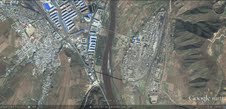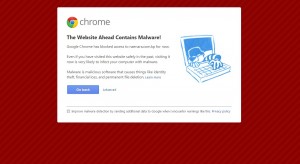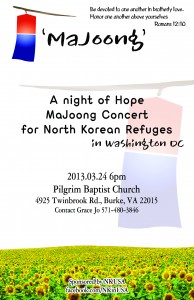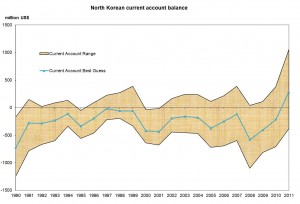According to Yonhap:
North Korean leader Kim Jong-un called for concentrated efforts to build up the country’s light industrial sector that has direct bearing on the lives of everyday people, state media reported Tuesday.
The (North) Korean Central News Agency (KCNA) monitored in Seoul said Kim stressed the importance of the sector in a speech given at the national meeting of light industrial workers held on Monday in Pyongyang.
“Kim Jong-un in his speech said that the light industrial front along with the agricultural front are the main fronts on which efforts should be focused in the drive for building an economic power and improving the people’s living standards,” the official news wire service reported.
It also said that Kim pointed out that light industry is the main target for the concentration of the country’s resources, even under heightened tensions surrounding the Korean Peninsula, the media report said.
…
The KCNA said Kim emphasized the goal of the country is to prevent a new war from breaking out on the Korean Peninsula and to strive for economic growth under peaceful circumstances to highlight the superiority of Pyongyang’s socialist system and hasten eventual unification of the two Koreas.
The news report said the leader pointed out that there is a pressing need to locally produce materials and parts for the light industrial sector and ordered the development of the chemical sector and build-up of regional manufacturing capabilities.
“It is necessary to make the most effective use of existing production potential to radically increase the production of consumer goods and push forward with the modernization of light industry, and make it the world’s standard,” the leader told people gathered at the meeting.
Kim, moreover, called for creating up-to-date managerial and corporate strategies, and doing away with the inflexible attitudes of workers and managers in the light industry field.
North Korea watchers in Seoul said the North Korean leader’s latest remarks on light industry mirrors what he said in the New Year’s address on Jan. 1. The light industry gathering is the first to be held in 10 years. The last time such a gathering was held was in late March 2003.
Chang Yong-seok, senior researcher at the Institute for Peace and Unification Studies at Seoul National University, said the emphasis on light industry at a time when Pyongyang has placed the country in battle mode is a sign that the North does not want to ignore the economy or its impact on the people.
Others such as Yang Moo-jin, political science professor at the University of North Korean Studies, claimed that the KCNA report and the sudden holding of the meeting may be a sign that Pyongyang wants to end the current confrontational stance with the outside world and focus on its economy.
“This may be an indirect message (of reconciliation) sent to South Korea, the United States and China,” the expert said.
Reflecting this view, an official at the unification ministry, who declined to be identified, said Kim’s interest in light industry may be due to the lack of progress made so far, and the need to invite foreign capital to get various commercial projects moving.
“The North can’t do this by itself so it may be seeking outside cooperation,” he said.
KCNA commentary here and here. Rodong Sinmun has coverage here.
NK Leadership Watch has some more information here.
Daily NK has coverage of the speech here.
The Daily NK also reports that light industrial production has been hampered by recent military mobilizations:
The mobilization of factory workers for military training exercises is having a considerable effect on economic activity in North Korea, Daily NK has learned. In particular, much light industrial production capacity has already been idle for around a month.
A source from Chongjin in North Hamkyung Province told Daily NK on the 18th, “The only factory work teams that are operational right now are those making stuff for the military; almost everyone else has been mobilized for the military exercises. Since other teams are not producing anything, workers in them are not being given food, not even for just a few meals each, and this is making life even harder for them and their families.”
In North Korea, most factories and enterprises are so-called ‘self-sustaining’ entities, in practice meaning that they are sustained through the selling of goods to wholesalers or directly in the ’jangmadang’ (state-sanctioned market). Income from sales is used to finance the purchase of additional production inputs. There are some differences across regions and types of enterprise, but on average enterprises are permitted to allocate around 30% of production to this purpose.
The source went on, “For example, all the staff in Chongjin Shoe Factory have been mobilized apart from the ones doing military footwear, and the workers in that section are also having a hard time because they have not been mobilized precisely in order to make excessive amounts of that product,” before explaining, “Normally that work team would produce its quota of military footwear and then turn to civilian production and sustain itself by selling the output, but for the last month all they’ve been doing is making military goods.”
In North Korea, it is not only ‘military factories’ that produce military goods; rather, every factory has a work team dedicated to the production of one military item or another. According to the source, for a month there has been no production on other lines, while only the military lines are operational.
“In the case of Chongjin Wood Processing Factory, they’ve been producing nothing but ammunition boxes for a month, where they were previously accustomed to producing chairs, wardrobes, and cupboards for storing bedding,” the source said. “The workers had been living reasonably well, but right now they are complaining about how tough it is.”
In the case of Kimchaek Iron and Steel Complex, one of the largest industrial entities in the region, among many tens of work teams only the personnel required for weapons production are still working; the remaining thousands of workers have been mobilized for military training.
The source noted, “Workers in any and all enterprises are used to receiving a share of production with which to maintain themselves and their families, but right now, with having to spend days in the mountains or down in underground tunnels, their hardships are being significantly exacerbated.” There is a trickle down effect in the wider economy, he added, saying, “The problems extend down to traders, who are accustomed to getting the factory distribution to sell.”
Read the full article here:
N. Korean leader calls for concentrated efforts to build up light industry
Yonhap
2013-3-19




